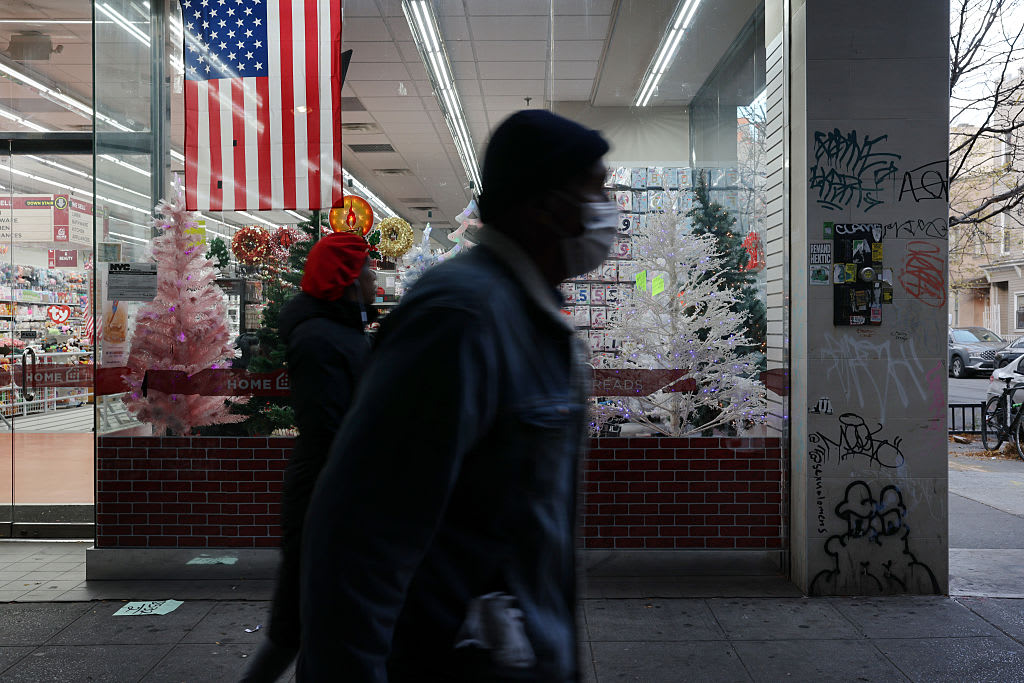Retailers roll out summer deals for inflation-weary consumers. Here's where.
Americans who spend Memorial Day scouting sales online and in stores may find more reasons to celebrate the return of warmer weather. Major retailers are stepping up discounts heading into the summer months, hoping to entice inflation-weary shoppers into opening their wallets.
Target, Walmart and other chains have rolled out price cuts — some permanent, others temporary — with the stated aim of giving their customers some relief. The reductions, which mostly involve groceries, are getting introduced as inflation showed its first sign of easing this year but not enough for consumers who are struggling to pay for basic necessities as well as rent and car insurance.
The latest quarterly earnings reported by retailers Walmart, Macy's and Ralph Lauren showed consumers have continued to spend at their stores. However, multiple CEOs, including the heads of McDonald's, Starbucks and home improvement retailer Home Depot, have observed a decline in sales as people are becoming more price-conscious and choosy.
A January poll by consulting firm Revenue Management Solutions found that about 25% of people who make under $50,000 were cutting back on fast food, pointing to cost as a concern.
"Retailers recognize that unless they pull out some stops on pricing, they are going to have difficulty holding on to the customers they got," Neil Saunders, managing director of consulting and data analysis firm GlobalData, said. "The consumer really has had enough of inflation, and they're starting to take action in terms of where they shop, how they shop, the amount they buy."
For now, companies appear to be looking toward rewards points programs, discounts and mobile apps in an effort to keep customers loyal. But McDonald's CEO Chris Kempczinski acknowledged the impact of rising prices last month in an earnings call.
"Consumers continue to be even more discriminating with every dollar that they spend as they face elevated prices in their day-to-day spending, which is putting pressure on the industry," Kempczinski said. "[I]t's imperative that we continue to keep affordability at the forefront for our customers."
Home Depot's sales continued to soften in the first quarter as Americans are pulling back on large home remodeling projects, like bathrooms and kitchens, and that is hitting Home Depot, said Saunders.
Sales at the nation's largest home improvement retailer slipped 2.3% to $36.42 billion for the period ended April 28, just shy of the $36.65 billion that analysts polled by Zacks Investment Research expected. It was the third consecutive quarter of declining sales for the retailers, which saw sales skyrocket during the pandemic.
"Overall, Home Depot remains a formidable business. The current challenges are all caused by a period of churn in the consumer economy rather than by any missteps the company has made. Even so, we think the year ahead will be one of continued reset," he said.
Price war taking hold
While discounts are an everyday tool in retail, Saunders said these price cuts mark the first big "price war" since inflation started taking hold.
Higher-income shoppers looking to save money have helped Walmart maintain strong sales in recent quarters. But earlier this month, the nation's largest retailer expanded its price rollbacks — temporary discounts that can last a few months — to nearly 7,000 grocery items, a 45% increase. Items include a 28-ounce can of Bush's baked beans marked down to $2.22, from $2.48, and a 24-pack of 12-ounce Diet Coke priced at $12.78 from $14.28.
Company executives said the Bentonville, Arkansas-based retailer is seeing evidence that more people are eating at home versus eating out. Walmart believes its discounts will help the business over the remainder of the year.
"We're going to lead on price, and we're going to manage our (profit) margins, and we're going to be the Walmart that we've always been," CEO Doug McMillon told analysts earlier this month.
Not to be outdone by its closest competitor, Target last week cut prices on 1,500 items and said it planned to make price cuts on another 3,500 this summer. The initiative primarily applies to food, beverage and essential household items. For example, Clorox scented wipes that previously cost $5.79 are on shelves for $4.99. Huggies Baby Wipes, which were priced at $1.19, now cost 99 cents.
Low-cost supermarket chain Aldi said earlier this month that it was cutting prices on 250 products, including favorites for barbecues and picnics, as part of a promotion set to last through Labor Day.
Fast-food promos
McDonald's plans to introduce a limited-time $5 meal deal in the U.S. next month to counter slowing sales and customers' frustration with high prices. Burger King recently announced it is planning to offer its own $5 value promotion ahead of McDonald's.
Other fast-food chains offering new promos include Wendy's, which recently announced a new breakfast combo of potatoes plus an egg sandwich for $3.
Arko Corp., a large operator of convenience stores in rural areas and small towns, is launching its most aggressive deals in terms of their depth in roughly 20 years for both members of its free loyalty program and other customers, according to Arie Kotler, the company's chairman, president and CEO. For example, members of Arko's free loyalty program who buy two 12-packs of Pepsi beverages get a free pizza. The promotions kicked off May 15 and are due to end September 3.
Kotler said he focused on essential items that people use to feed their families after observing that the cumulative effects of higher gas prices and inflation in other areas had customers hold back compared to a year ago.
"Over the past two quarters, we have seen the trend of consumers cutting back, consumers coming less often, and consumers reducing their purchases," he said.
Other retailers
In the non-food category, crafts chain Michaels last month reduced prices of frequently purchased items like paint, markers and artist canvases. The price reductions ranged from 15% to up to 40%. Michaels said the cuts are intended to be permanent.
Many retailers said their goal was to offer some relief for shoppers. But Michaels said its new discounts brought prices for some things down to where they were in 2019.
"Our intention with these cuts is to ensure we're delivering value to the customer," The Michaels Companies said. "We see it as an investment in customer loyalty more than anything else."
Target said it was difficult to compare what its price-reduced products cost now to a specific time frame since inflation levels are different for each item and the reductions varied by item. The retailer this month said it's slashing prices on 5,000 different items, as consumers feel pressure to maximize their budgets. Discounted goods include fruit, milk, meat, peanut butter, pet food, paper towels and more.
Food prices soar
The Bureau of Labor Statistics, which tracks consumer prices, said the average price of a two-liter bottle of soda in April was $2.27. That compares with $1.53 in the same month five years ago. A pound of white bread cost an average of $2 last month but $1.29 in April 2019. One pound of ground chuck that averaged $5.28 in April cost $3.91 five years ago.
U.S. consumer confidence deteriorated for the third straight month in April as Americans continued to fret about their short-term financial futures, according to the latest report released late last month from the Conference Board, a business research group.
With shoppers focusing more on bargains, particularly online, retailers are trying to get customers back to their stores. Target this month posted its fourth consecutive quarterly decline in comparable sales — those from stores or digital channels operating at least 12 months..





